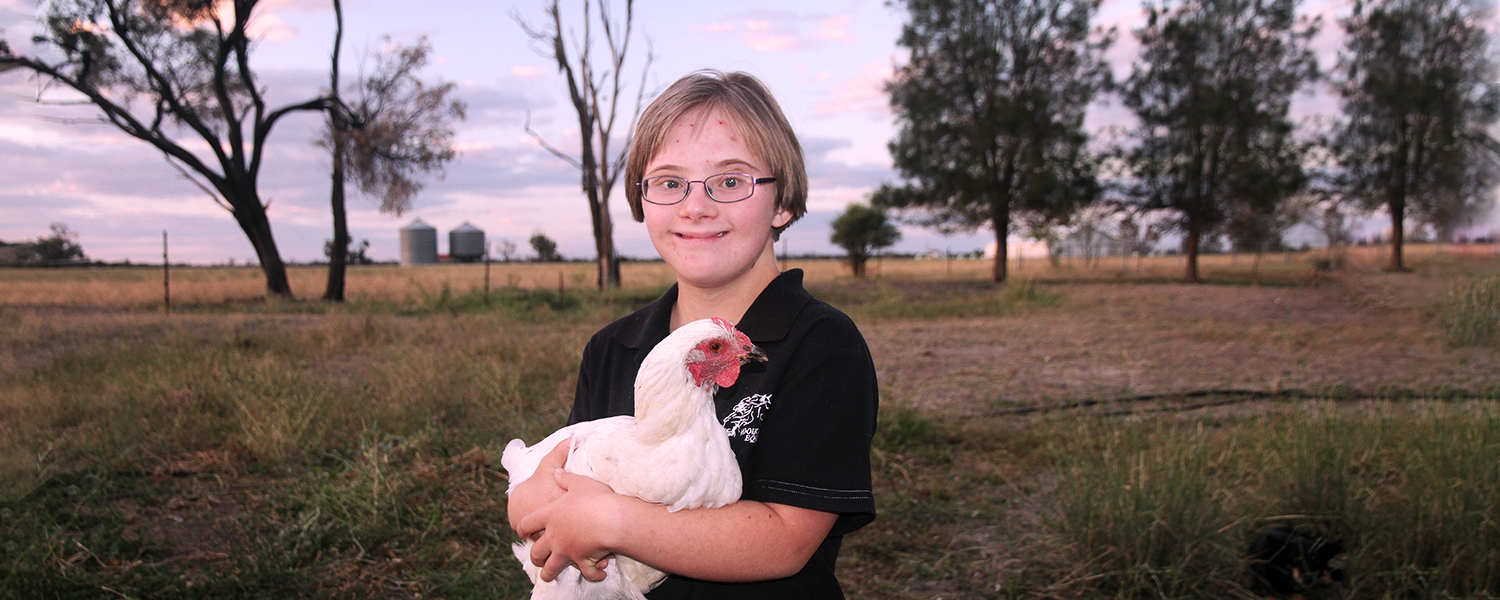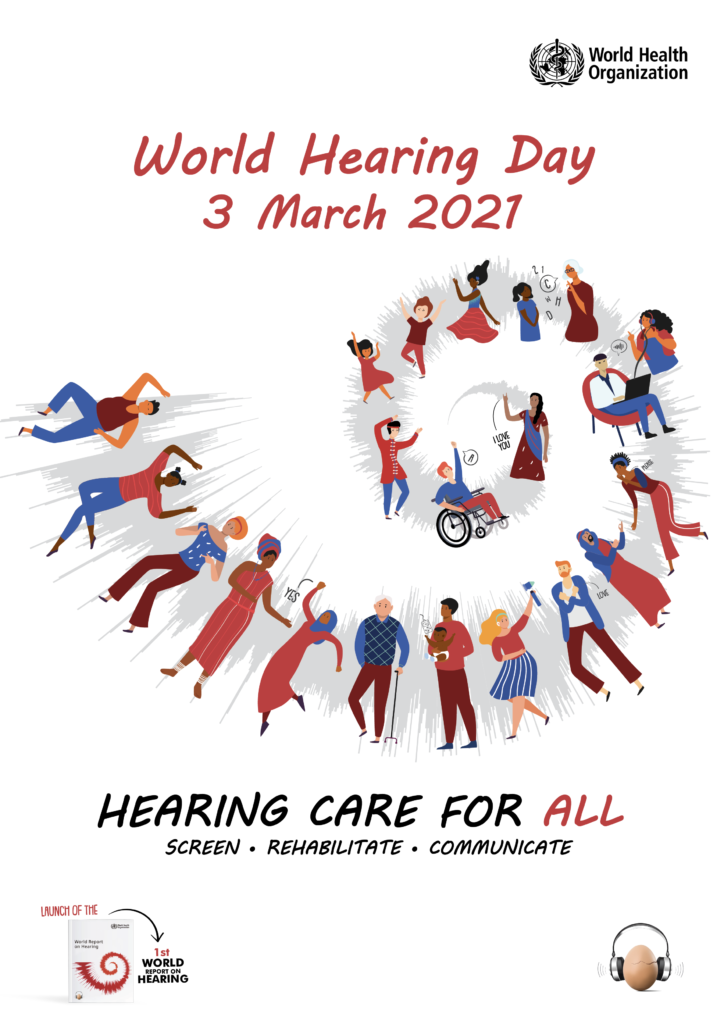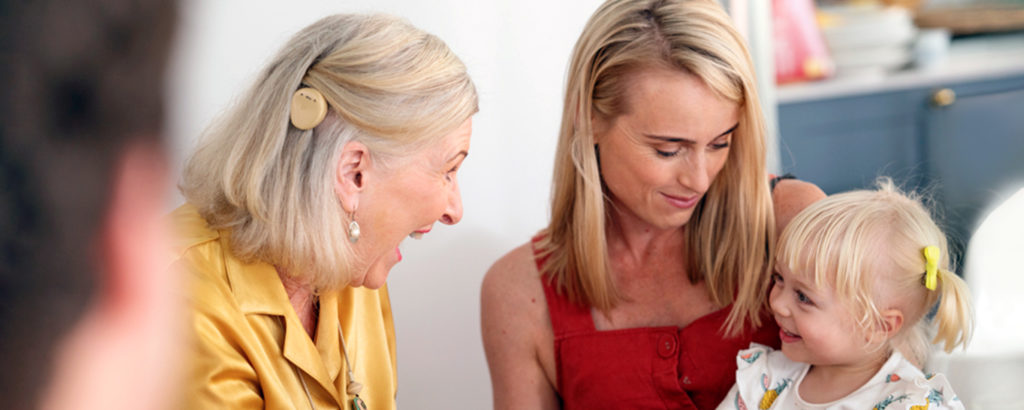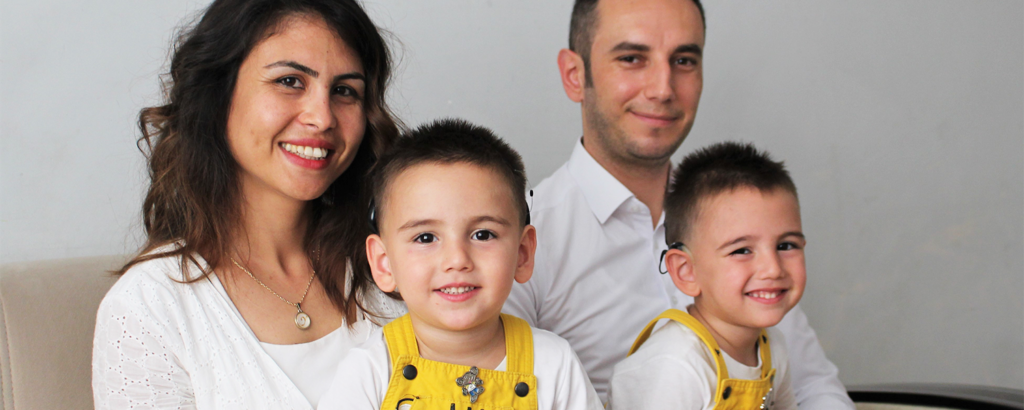When Elri discovered a reptile threatening the family’s chickens in their backyard coop, rather than yell ‘snake!’ to raise alarm bells, the 12-year old took her time to explain what she had witnessed.
After all, using multiple words and language to explain what she was seeing was something her mother had always encouraged her to do.
‘Mum there is something in the chicken coop. Guess what it is? It is brown and long. It has no legs. It likes to eat baby chicks,’ Elri told her mother, Antjie.
The irony for Antjie was that the urgency of the situation warranted a one-word response.
‘I think she was quite perplexed with my answer: “Why don’t you just say snake!” She must have thought we were back to one word sentences again.
‘Just the one word, which would have been more appropriate in this case!’ says Antjie.
The situation, funny with hindsight, is an example of how Elri has positively responded to listening and spoken language exercises encouraged by her family since she received her Cochlear™ Baha® 5 Sound Processor in January 2019.
‘Elri always used basic sentences with few adjectives and she had struggled pronouncing longer words,’ says Antjie. ‘But since she got the Baha 5, she describes things in much more detail and is now using new words frequently.’
Antjie says Elri’s language has improved with the Baha System because her pronunciation of words improved, as she now is able to hear more speech sounds.
‘More new words give her the scaffolding for longer sentences as well as the confidence to use those words correctly,’ she says.
‘Elri is very impressed with the progress she has made. She is engaging in longer conversations, which is what we were hoping for as we have been working very hard on this, always expanding on the sentences.’
Antjie’s top advice for other families to help their child’s listening and spoken language development:
Read, read, read
Elri was a couple of weeks old when we started reading stories to her. When she was a toddler, I would read five to 10 books a day to her and she always asked for more. She is a keen and competent reader herself now. Because we all speak English as a second language, we are quite aware of grammar. We also do set a good example by reading and talking about good books to our kids. Good books teach good grammar.
Give your child your full attention
Whenever Elri has something to say, whenever possible when engaging with her one on one, I give her my full attention. Her conversations are valuable and important.
I compliment her on new words and then ask some ‘Wh’ questions: When, where, what, why, who.
I answer back in shorter, but full sentences, avoiding one-word questions and answers. If she gives me a one-word answer, I model the same answer in a full sentence.
Promote conversation
We don’t have television anywhere in the house. Over weekends we will watch a movie on DVD as a family. Elri has a collection of BBC Earth DVDs. I don’t mind if she picks up some of Sir David Attenborough’s English or from other DVDs with good quality English.
We also like to spend time in the living room talking about our day or whatever and we always eat at the dinner table where everyone has equal opportunity to share their stories.
Be positive and encouraging
I never correct Elri’s speech or language in public. She should never doubt her own effort. Better to just model the correct sentence as a kind of reply. For example, I respond back to her with full sentences. If I ask, ‘Where did you play today?’ and she responds, ‘the chicken coop,’ I might follow up with, ‘Oh, you played in the chicken coop today.’
Get to know Elri better. Read our article about how two Wireless Mini Microphones make her life easier at school here.




